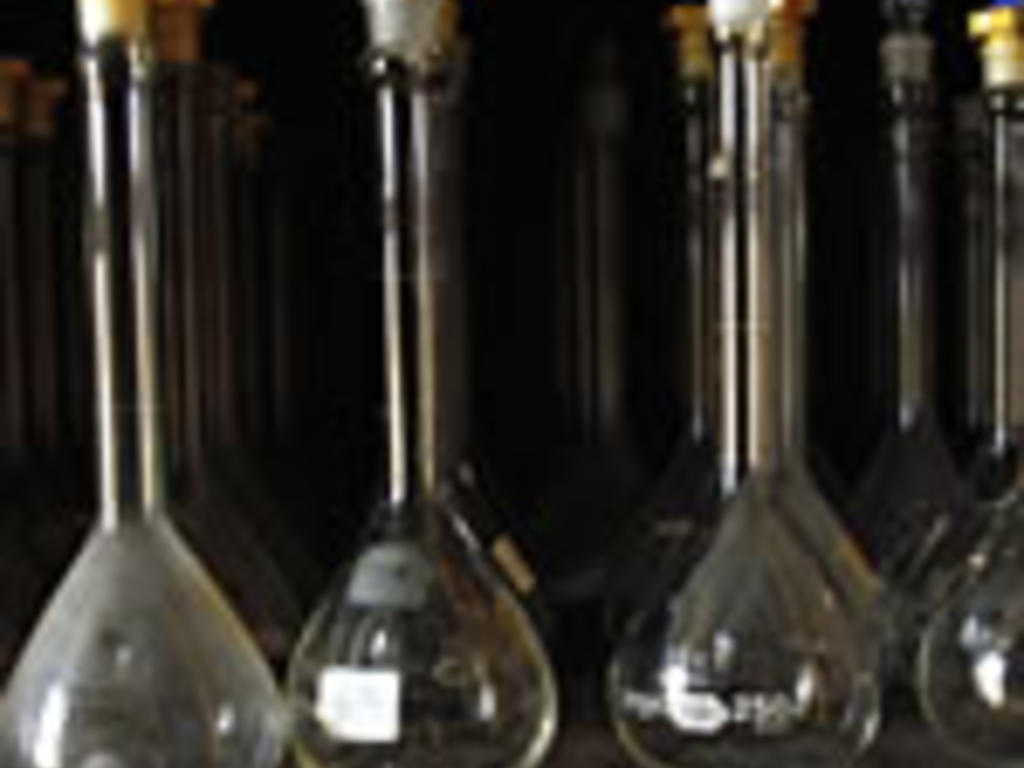A quick read of this issue of Rhodes provides a glimpse of how our alums, faculty and students are working to advance science, improve their communities, develop solutions to real-world problems and address some of society’s greatest challenges.
Today at Rhodes, more students than ever before are majoring in the natural sciences. Last year, 40 percent of admission applicants said they intended to do so. In fact, the demand for study in the sciences has almost tripled since construction of the main science complex in the late 1960s, and the number of students interested in health professions careers has climbed to almost 30 percent of our student body.
But this is 2012, and we are offering 21st-century science curricula in buildings designed to facilitate the science curricula of 50 years ago. It’s time for a transformation, and here’s why:
Faculty will tell you that lab work is more project-oriented, experimental and interdisciplinary, often calling for collaborative work. It entails three to four students sharing high-tech resources at a “pod” rather than pairs working together. Many such lab experiences require open configurations and clear sight lines for faculty/student presentations, with space for whiteboards and computer projection.
As faculty members have increased their collaborative teaching and research activity, Rhodes has added new interdisciplinary programs in the natural sciences: Biochemistry and Molecular Biology, Neuroscience, and Environmental Science. It is not uncommon for a faculty member to work with two or three students as well as colleagues from other departments. Further, Rhodes’ strong emphasis on combining classroom and hands-on, experiential learning through fellowships has seen a steady increase in the number of students participating in research. While some join a faculty team’s ongoing research project, others choose to work with a community-based partner, such as St. Jude Children’s Research Hospital. Our goal is for our science environment to enhance this kind of interaction, assisting research teams through shared equipment and facilities.
To achieve that goal, we envision renovating the existing science buildings, linking them to create a space that encourages collaboration and community. The result will be a comprehensive science complex with Frazier Jelke as the “hub” and Rhodes Tower, Kennedy, Ohlendorf and Clough halls as the four “spokes,” designed to facilitate cross-departmental interactions and further the expansion of interdisciplinary teaching and research.
Renovating our science facilities will put us in an unprecedented position of strength to do what we do best: provide our students access to world-class faculty and real-world experiences. This is how Rhodes changes lives, forges tomorrow’s leaders and lifts spirits far beyond the campus gates.
For further information, contact Jenna Goodloe Wade at 901-843-3850.
Quick Facts
In the late 1960s, Rhodes, then named Southwestern at Memphis, conducted a $3.8 million Challenge Campaign for an expansion program. That $3.8 million translates to some $25.3 million in 2012 dollars.
In 1967, the Frazier Jelke Foundation of New York City gave $500,000 ($3.3 million today) to the campaign, and the Ford Foundation matched it by half.
Ferdinand Frazier Jelke (1880-1953), a Yale graduate, was an international investment banker and philanthropist. He was also the author of Letters from a Liaison Officer, a collection of letters he wrote to his mother during World War I, published in 1919, and An American at Large, an autobiography published in 1947.
Memphian J. Hallam Boyd, president of Commercial Chemical Co. and a trustee of the Frazier Jelke Foundation, said of the gift in the Jan. 13, 1967, edition of the student newspaper, The Sou’wester: “The primary factor in our choosing of Southwestern for the grant is the caliber of its student body, faculty and board of trustees. The Ford Foundation also looked upon Southwestern as one of the greater institutions in the country.” The gift, he went on to say, “wasn’t really to memorialize any man’s name or publicize the foundation,” but rather to “add impetus to Southwestern’s Challenge Campaign and stimulate more people to support this school.”
